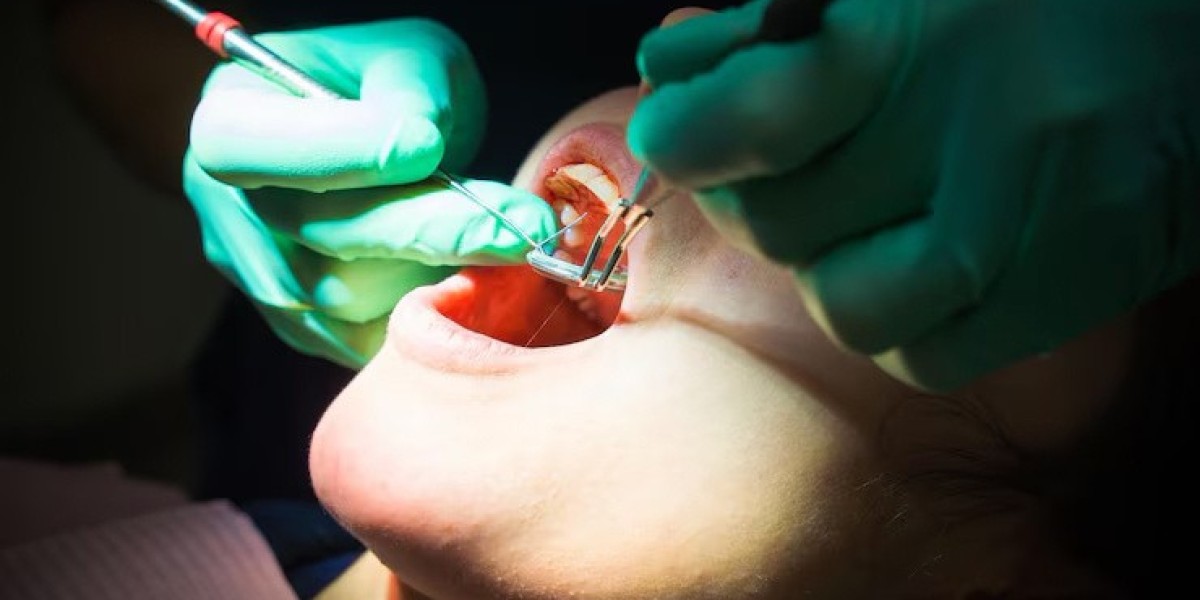From a dental perspective, Wisdom tooth extractions are a common dental procedure that many people undergo, particularly during their late teens or early adulthood. While it may sound intimidating, it is often necessary to prevent future dental complications. But what exactly are the risks and benefits associated with this procedure? By understanding these factors, patients can make informed decisions about their dental health.
Why Are Wisdom Tooth Extractions Necessary?
Wisdom teeth are the last set of molars that typically emerge in a person's late teens or early twenties. For some people, these teeth come in without causing any issues. However, for many others, the arrival of wisdom teeth can create significant problems, leading to the need for extraction.
One of the most common reasons for wisdom tooth extractions is impaction. This occurs when there isn’t enough space in the mouth for the teeth to emerge fully. As a result, the teeth can grow at awkward angles, pressing against neighboring teeth or the jawbone. Impacted wisdom teeth can lead to pain, infections, and damage to adjacent teeth.
Even if the wisdom teeth do come in properly, they can still pose risks. Since they are located at the back of the mouth, they can be challenging to clean effectively. This can lead to the buildup of bacteria, increasing the likelihood of tooth decay, gum disease, and other oral health problems.
Risks Associated with Wisdom Tooth Extractions
Like any surgical procedure, wisdom tooth extractions come with their share of risks. Understanding these risks can help you prepare for the procedure and take the necessary precautions to minimize complications.
One of the most common risks is dry socket. After a tooth is extracted, a blood clot forms at the site to protect the bone and nerves during healing. If this clot becomes dislodged prematurely, it can expose the underlying bone, leading to intense pain. Although dry socket can be treated, it can significantly slow down the recovery process.
Another potential risk is infection. Even with proper post-operative care, there is a small chance that bacteria can enter the extraction site, leading to an infection. Symptoms of infection include swelling, fever, and a foul taste in the mouth. In such cases, antibiotics may be prescribed to control the infection.
There is also a possibility of nerve damage during wisdom tooth extractions. While rare, the procedure can sometimes affect the nerves responsible for sensation in the lips, tongue, and chin. Finally, bleeding and swelling are common after-effects of wisdom tooth extractions, though they usually subside within a few days. It is important to follow your dentist’s post-operative care instructions to manage these symptoms effectively.
Benefits of Wisdom Tooth Extractions
Despite the potential risks, there are significant benefits to having wisdom teeth removed, especially when the procedure is performed correctly. These benefits often outweigh the risks, making wisdom tooth extractions a measure to ensure long-term oral health.
One major benefit is the prevention of crowding and misalignment of teeth. Wisdom teeth can push against the other teeth in the mouth, leading to shifts in alignment. This can undo the effects of previous orthodontic treatments and result in crooked or overcrowded teeth. By extracting wisdom teeth before they cause crowding, you can maintain a straight smile and avoid the need for further orthodontic work.
Wisdom tooth extractions can also prevent damage to adjacent teeth. Impacted wisdom teeth can press against the neighboring molars, causing wear and even decay. In some cases, cysts can form around impacted teeth, which may damage the roots of the jawbone. Removing the wisdom teeth reduces potential of these complications. Moreover, undergoing wisdom tooth extractions treatment can help prevent oral infections.
Wisdom teeth are located at the back of the mouth, which makes them difficult to clean properly. By removing them, you lower the risk of developing cavities or gum disease in these hard-to-reach areas. Lastly, wisdom tooth extractions can relieve pain and discomfort. If your wisdom teeth are causing swelling, headaches, or jaw pain, extraction can provide immediate relief. Without the constant pressure from the teeth, you’ll experience better overall oral comfort.
Choosing the Right Wisdom Teeth Extraction Clinic
When it comes to wisdom tooth extractions, selecting a reputable clinic is essential. The right wisdom teeth extraction clinic will provide professional care, helping to minimize risks and ensuring a smooth recovery.
First and foremost, you’ll want to find a clinic that specializes in oral surgeries, particularly wisdom tooth extractions. Experienced oral surgeons have the necessary expertise to handle complex cases, such as impacted teeth or teeth that are close to vital nerves. This specialization increases the chances of a successful procedure with minimal complications.
Additionally, make sure the clinic provides thorough consultations before the surgery. A good clinic will take the time to assess your specific case, discuss potential risks, and walk you through the procedure. This consultation will give you the opportunity to ask questions and clarify any concerns you might have.
It’s also important to consider the aftercare support provided by the clinic. A quality wisdom teeth extraction clinic will offer detailed post-operative instructions and be available for follow-up appointments if needed. Proper aftercare plays a crucial role in preventing complications and speeding up the recovery process.
Lastly, consider the clinic’s reputation. Look for patient reviews and testimonials to gauge the experiences of others. A clinic with a strong track record of successful wisdom tooth extractions will provide the level of care for a safe and smooth procedure.
Conclusion
Wisdom tooth extractions can seem daunting, but they are often necessary to prevent future dental issues. While the procedure carries some risks, the benefits of avoiding complications such as crowding, decay, and infections make it a worthwhile consideration. By choosing the right wisdom teeth extraction clinic and understanding both the risks and benefits, you can make an informed decision about your oral health.








